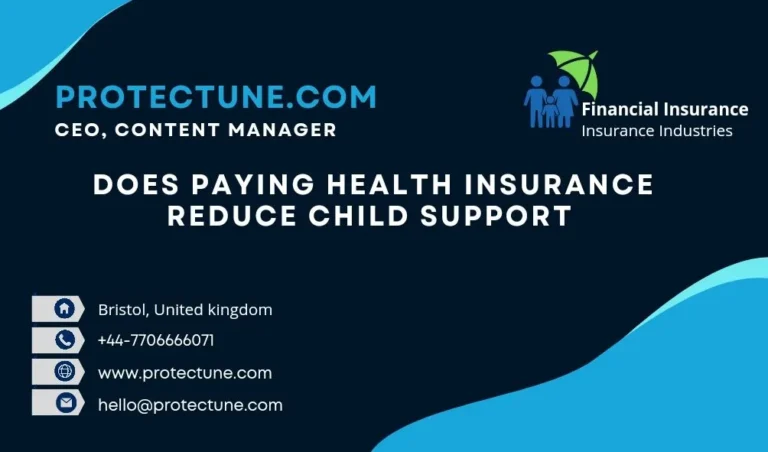Navigating the complexities of child support can be an overwhelming aspect of single parenthood. One often overlooked yet crucial element of child support negotiations is the role of health insurance. Single parents, child support recipients, and family lawyers, in particular, stand to benefit from a clearer understanding of how health insurance can impact child support payments.
This informative blog post is tailored to clarify the intricate relationship between health insurance and child support obligations. If you’re a single parent seeking insight into how you can provide for your child while ensuring they have comprehensive health coverage, read on.
Understanding Child Support and Health Insurance
The Purpose of Child Support
Child support, at its core, is financial assistance provided from one parent to the other for the well-being and care of the child. It is designed to cover the child’s daily expenses, medical needs, and any other costs associated with raising a child.
Health Insurance in Child Support Agreements
Health insurance is a significant component of child support agreements. When one parent provides health insurance for the child, the other parent may be required to contribute less in direct financial support. However, the exact impact of health insurance on these payments is subject to various factors and can differ from case to case.
The Impact of Health Insurance on Child Support Payments
How Health Insurance Coverage Affects Child Support Calculations
Health insurance coverage is factored into child support calculations as what is commonly referred to as a “credit.” The parent providing health insurance is credited for the premium they pay and the benefits that insurance provides for the child. This credit directly reduces the amount of child support that the non-insuring parent is required to pay.
Factors Considered when Determining the Reduction
The reduction in child support due to health insurance is typically calculated based on the ratio of each parent’s income to the total family income. The state’s Child Support Guidelines, which vary, will usually provide a framework for how this is determined.
Benefits of Providing Health Insurance
Advantages for the Child’s Well-Being and Access to Healthcare
Ensuring that your child has health insurance means they’re one step closer to receiving the medical care they need. Having insurance in place can provide peace of mind and timely access to treatments that could improve their overall well-being.
Potential Cost Savings for the Custodial Parent
The parent with physical custody may see a significant reduction in out-of-pocket healthcare costs, particularly if the other parent’s insurance policy offers comprehensive coverage. This can mean more financial stability for the custodial parent and more resources directly benefitting the child.

Considerations and Limitations
Potential Challenges and Limitations of Health Insurance in Child Support Cases
While the idea of insurance directly impacting child support is straightforward, there can be challenges. These may include the affordability of the policy for the insuring parent, especially when it’s an added expense on top of child support. Additionally, not all health insurance plans are equal, and if the child requires treatments not covered by the policy, there may still be significant out-of-pocket expenses.
Scenarios Where Health Insurance May Not Result in Reduced Child Support Payments
It’s important to note that in some cases, health insurance may not lead to a reduction in child support, such as when the insurance provision is part of a different legal arrangement that does not relate to child support obligations.
Legal Considerations and Case Examples
Overview of Legal Requirements and Considerations
The state’s family law statutes play a pivotal role in determining the relationship between health insurance and child support. Understanding the legal framework in place, including mandatory provisions for health coverage of children, is paramount.
Case Examples Highlighting Different Outcomes and Court Decisions
Reviewing case studies and court decisions can offer valuable insights into potential outcomes. For instance, in some states, providing health insurance to one’s children could result in a mandatory reduction in child support.
Practical Advice for Child Support Recipients
It’s crucial for child support recipients to thoroughly understand the terms of their child support agreement, including any provisions related to health insurance. They should also directly communicate with the other parent and keep detailed records of all health-related financial transactions.
Single Parents Dealing with Health Insurance Matters
For single parents involved in child support negotiations, having a clear strategy for addressing health insurance can lead to a fair and comprehensive child support agreement. Seeking legal assistance and staying informed about the laws in your state can be beneficial.
Importance of Communication and Documentation
Open communication between co-parents, along with diligent documentation, is essential for tracking health insurance-related benefits and costs. It helps in ensuring transparency and might be necessary if a dispute arises.
Conclusion: Empowering Single Parents
Understanding the interplay between health insurance and child support is empowering for single parents. By being aware of your legal rights and responsibilities, you can make informed decisions that safeguard your child’s well-being and your financial stability.
Remember, each child support case is unique, and the laws and guidelines can vary significantly from state to state. Seeking legal advice tailored to your specific circumstances is always advisable. However, armed with the knowledge from this article, you are one step closer to navigating the often complex and emotional terrain of child support with greater clarity.
For further assistance or to delve deeper into this multifaceted topic, consult with an experienced family attorney. They can offer personalized guidance and support as you strive to provide the best care for your children while balancing financial obligations. After all, the well-being of your child is a shared priority, and understanding the nuances of child support law, especially in relation to health insurance, is a step toward achieving that common goal.
If you found this information valuable, don’t keep it to yourself! Share it with friends, family members, or colleagues who could benefit from a better understanding of health insurance and child support. After all, knowledge is power, and in this case, it translates directly to stronger support systems for children in single-parent households.
